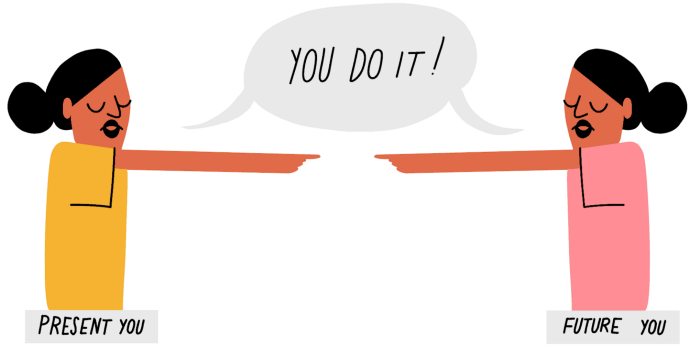Recently, as I was clearing the dinner table, I asked my daughter if she could wash the dishes.
“I was going to, Dad,” she said. “But now that you’ve asked me to, I don’t want to anymore.”
I should have known better. This was a classic example of psychological reactance.
What is psychological reactance
Psychological reactance is our knee-jerk negative reaction to being told what to do.
It’s why, when you were a teenager and your mother told you to put on your jacket, you didn’t do so–just ’cause. Only later, as you heard your teeth chattering in the cold, did you concede that you should have taken Mom’s advice.
It’s why you bristle when your manager asks you to do a task, even though you know, when you think about it logically, that the task is critical.
Almost everyone has this negative mental reflex. It kicks in whenever we sense that our autonomy is being threatened. This isn’t inherently bad—if people are too compliant, they’re vulnerable to manipulation. But psychological reactance can, at times, prevent us from doing things that we should do, sometimes even things we want to do. Most alarmingly, it can lead to self-sabotage.
How? That knee-jerk impulse of “Don’t tell me what to do!” can kick in even when it’s you telling yourself what to do.
This is common when you’re trying to make commitments and follow through on them by building a schedule, a technique I recommend in my book Indistractable. You may have scheduled time for something that you legitimately want to do—say, work out or read a nonfiction book.
But when it comes time to do those things per your timeboxed schedule, you might feel a bit of reactance. This happens because, at that moment, it doesn’t feel as though you’re deciding what to do. Rather, it’s you from the past giving orders to your present self. Ugh, who does that guy think he is?
Psychologists tell us this paradox is why we can often be hypocrites—we say we’ll do something, but when the time comes, we don’t.

How can we avoid psychological reactance?
Fortunately, now that you understand the theory of psychological reactance, you can lessen its power. Instead of flaking on commitments because of a knee-jerk feeling, you can change your perspective on the situation.
Here’s a trick: To disarm psychological reactance, change the way you talk to yourself. Instead of thinking you “have to” do something, tell yourself you “get to” or even “deserve to” do it.
By changing the dialogue, you empower yourself. Now you’re in charge. You’re not being told what to do—you’re choosing to make time for something that matters to you.
Your freedom isn’t being threatened; it’s being exercised.
Combating psychological reactance takes practice, but it’s worth learning how to deal with this uncomfortable feeling that all too often leads us off track.
Try changing the way you deal with reactance and, until then, whatever you do, don’t share this article.
Related Articles
- Schedule Maker: a Google Sheet to Plan Your Week
- Habit Tracker Template in Google Sheets
- The Ultimate Core Values List: Your Guide to Personal Growth
- Timeboxing: Why It Works and How to Get Started in 2024
- An Illustrated Guide to the 4 Types of Liars
- Hyperbolic Discounting: Why You Make Terrible Life Choices
- Happiness Hack: This One Ritual Made Me Much Happier

